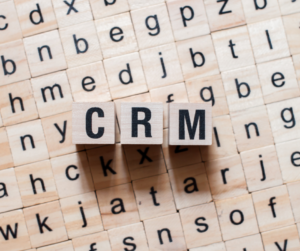The pandemic has revealed the vulnerability of current supply chain systems across the world. Now we know that supply chains need to respond rapidly to disruptions while maintaining flexibility.
These days, a most important type of transportable good has been developed: The COVID-19 vaccine. The main global challenge: How can the distribution of COVID-19 vaccines be fast and effective?
Prior to COVID, distribution and delivery of crucial items like vaccines were done in a fixed, direct — and manual — manner. Delays in communication in this kind of process were inevitable, so being able to respond with agility was of prime importance. The inefficiencies were exacerbated by limitations to data and visibility, and suboptimal resource allocation.
The COVID vaccines pose another challenge — they must be stored in containers at sub-zero temperature. They have expiration dates so they must get to their destinations at the soonest possible time.
Thus, delivery is not the only process that is important. Every part of the process must be run with fluidity and precision to avoid losses and delays. This virus has already placed a heavy burden on people, health systems, and economies. One day of delay is a day too many.
Distribution of COVID-19 vaccines requires a huge amount of effort in integration and in coordination, and if done correctly, it can modernize, digitize, and reshape logistics in the future.
Cloud technology is helping ensure that the vaccines get to where they should be. Digital Supply Chain Management Systems (DSCMS) can help manage every aspect of the supply chain, removing those unnecessary delays and inefficiencies, achieving visibility, accuracy, productivity, agility, and responsiveness.
- Visibility – This removes the problem of the stakeholders’ limitation to access information and improves coordination and collaboration.
- Accuracy – Having real-time visibility across the entire system allows for accurate and active monitoring.
- Responsiveness – Disruptions can be avoided by having visibility and accuracy.
- Productivity – Delays, miscommunications, information asymmetries can be avoided by automating the entire process which results in continuous optimization of resources.
- Sustainability – Shifting to digital processes promotes substantial environmental benefits.
- Security – There are cybersecurity strategies that enable secure data-sharing while avoiding tampering (counterfeiting, theft and illegal diversion of vaccines) in the supply chain. Having a strong cybersecurity is essential to protect the vaccines’ integrity and confidentiality.
- Integrity – vaccines are required to be stored at a very low temperature and having a system that will track the temperature in real-time can help to detect and sort out issues.
Cloud-based technology enables complete visibility in the entire vaccine cold chain, from depots to health facilities.
Data are stored in a cloud server that provides web-based dashboards and data analytics. All of the gathered data including data from the supply chain will be useful in decision making and providing actionable analytics.
The virus has given the world mountains of challenges to overcome, but with an efficient distribution of vaccines that would help populations achieve herd immunity, we can finally say we are getting closer to navigating our way out of this global crisis.





